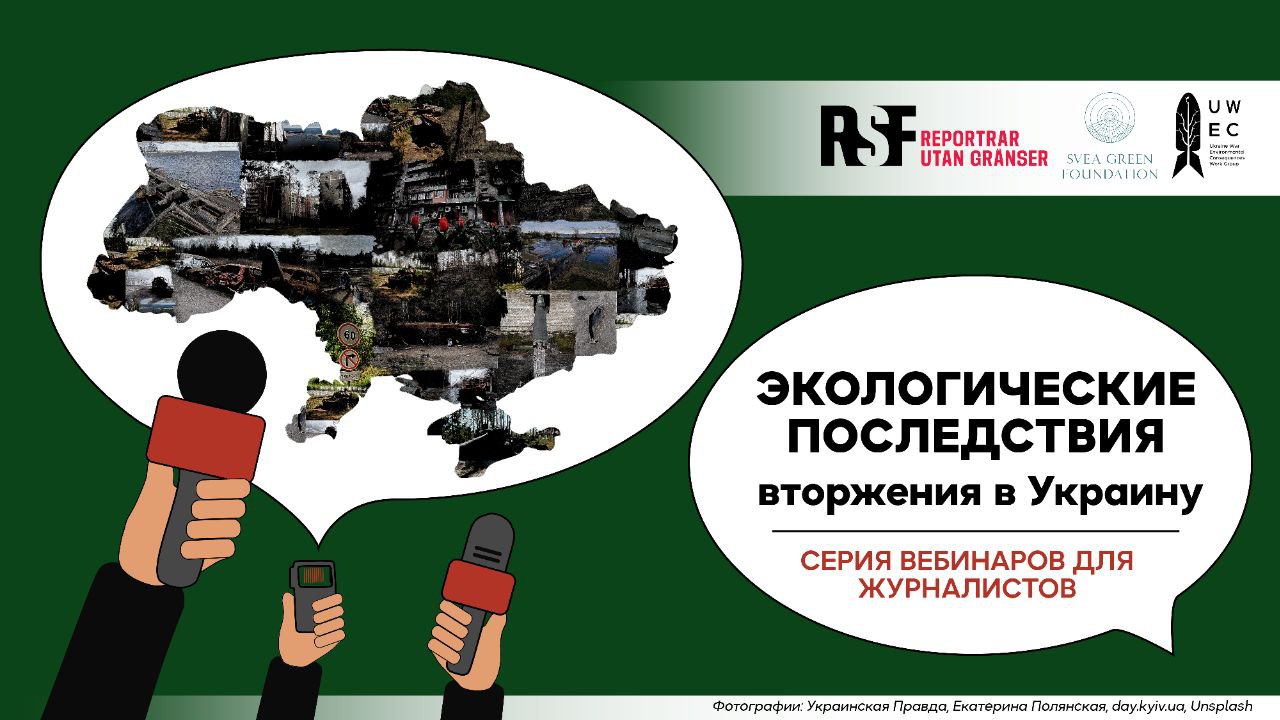Environmental Consequences of Russia’s Invasion of Ukraine
With support from RSF Sweden and Svea Green Foundation, the Ukraine War Environmental Consequences Work Group (UWEC) is launching a webinar series for Russian-speaking journalists about the environmental and climate impacts of Russia’s invasion of Ukraine.
UWEC Work Group members and invited experts will speak about the impacts of Russia’s full-scale invasion of Ukraine on the environment. They will also make specific recommendations regarding ways to verify information related to the environmental consequences of combat operations and suggest different tools that can be used in such analysis.
Preliminary topics:
- Defining the environmental and climate consequences of the war. Who evaluates these consequences and what methods are used for these evaluations?
- Direct environmental impact of Russia’s invasion and the consequences of chemical pollution resulting from combat operations.
- Nuclear safety and nuclear energy production in wartime conditions.
- Destruction of forests and other ecosystems, including those within protected areas. Wartime impacts to wildlife.
- Analysis of open data related to the environmental consequences of the war. How to identify errors and disinformation.
- The war’s influence on the global climate and energy agendas.
- Sanctions and weakening environmental and climate laws and policies in wartime. Environmental consequences for Russia, Belarus, Europe, and other nations.
- The war’s consequences for international collaboration in environmental conservation and climate change adaptation.
The first webinar will take place 29 April at 14:00 Central European Time (CET). There will be seven monthly webinars in the framework of this educational series.
The seminars will be conducted in Russian and are intended for journalists in the EECCA (Eastern Europe, Caucasus, and Central Asia) region. We invite media journalists collaborating in or focused on that region to participate, but we also welcome applications from other journalists writing for audiences in other countries.
Register here to participate. A Zoom link to the webinar will be sent out to registered participants a few days prior to the webinar’s start on 29 April.

